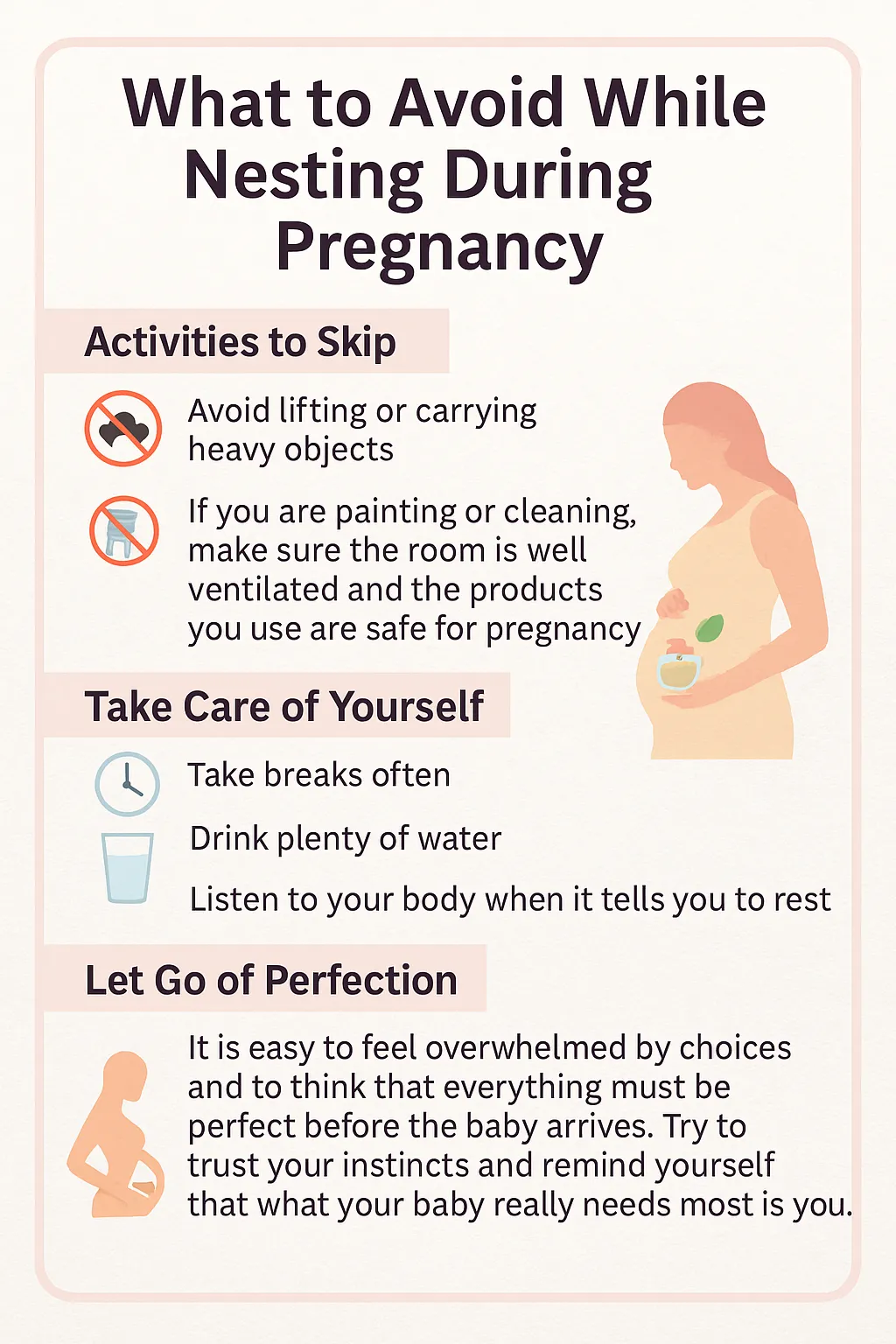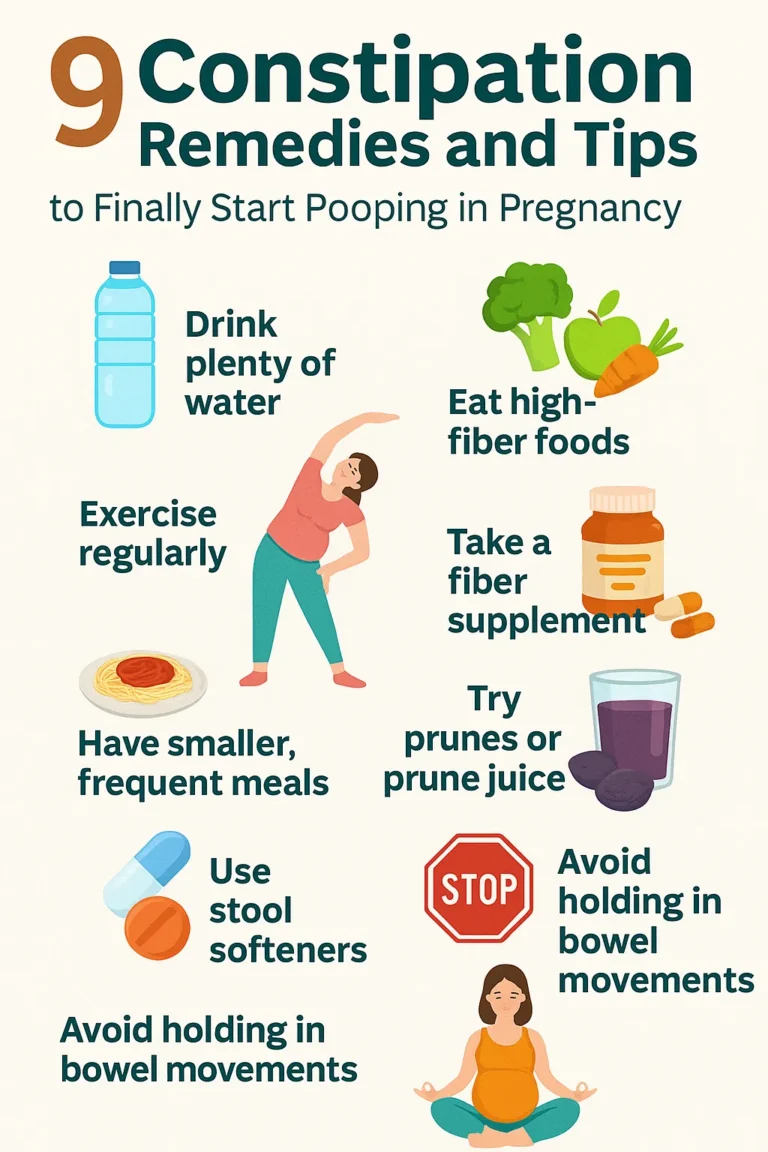What is Nesting During Pregnancy

The nesting instinct often shows up in the third trimester, bringing a sudden wave of energy that makes you want to prepare your home for the baby’s arrival.
What is Nesting
Nesting during pregnancy means getting your space ready for your baby. It usually comes with bursts of energy and a strong urge to clean, organize, and put everything in order. This instinct isn’t unique to humans. Animals like birds and dogs show similar behavior, all driven by the natural need to prepare and protect.
Nesting is not a medical condition, and your doctor will not mention it during prenatal visits. Research on it is limited, but one study found that pregnant women spent more time cleaning and organizing compared to those who were not pregnant. The same study also noted that moms-to-be preferred staying closer to home and were more selective about who they spent time with.
When Does Nesting Start
Some women feel the urge as early as 24 weeks, but it usually peaks in the 3rd trimester, just a few weeks before delivery. Because this happens close to the end of pregnancy, many believe it is a sign of labor. There is no scientific proof that nesting means labor is starting, especially since some moms begin months earlier. The stronger connection seems to be psychological — you want everything ready before baby arrives, not because labor is about to begin.
How Do I Know If I’m Nesting
Every mom experiences nesting differently. You may find yourself deep-cleaning the nursery, setting up baby gear, or folding and refolding baby clothes.
If you feel like you are nesting, you probably are. You may notice yourself keeping your social circle smaller, spending more time at home, or thinking about how a baby will affect your work life. For some, nesting is about the physical tasks. For others, it is more about preparing emotionally for the change in identity. And some women never feel it at all, which is completely normal.
In a Our poll, 73 percent of moms said they experienced nesting. Whether you do or do not has nothing to do with the health of your pregnancy. Some moms cannot nest because of restrictions like bed rest. Others, especially those who have gone through loss or infertility, may approach it more cautiously.
So do not worry if you are not nesting. Your third trimester already comes with plenty to do.
Will My Partner Nest Too
Your partner will not feel the biological instinct, but they may still get caught up in the excitement. While no research directly links partners to nesting, many take on their own projects such as setting up the nursery, stocking the freezer, or handling household preparations.
In the nineteenth century, anthropologists described nesting as a male behavior focused on preparing the physical home. Over time, it became more closely linked to expectant moms.
What to Do While Nesting During Pregnancy
Nesting can be helpful, since this is often the last chance to handle household projects before baby arrives. Once your little one is here, you probably will not have the time or energy to do big chores.
Nesting is not only about cleaning and organizing. It can also be a way to prepare emotionally for parenthood and create space to bond with your newborn. Just remember that third trimester can be tiring, so pace yourself and do not push too hard.
Common Nesting Projects
Here are a few tasks many moms-to-be take on while nesting:
- Prepare freezer meals that will be ready after your baby comes
- Order items from your third trimester shopping checklist
- Buy baby clothes or products you are still missing
- Remove tags, wash baby clothes, and organize them in the nursery
- Do laundry for the whole household
- Give your home a thorough cleaning
- Stock up the fridge and pantry
- Pack your hospital bag and finish your birth plan if you have not already
- Start planning your baby’s birth announcement
What to Avoid While Nesting During Pregnancy
Nesting on its own is not harmful, but it is important to be careful about how much you do. Keep these safety tips in mind:
Activities to Skip
- Avoid lifting or carrying heavy objects
- Do not climb tall ladders or stretch into hard-to-reach spots
- If you are painting or cleaning, make sure the room is well ventilated and the products you use are safe for pregnancy
Take Care of Yourself
It is common to feel full of energy, but exhaustion can sneak up quickly. Remember to:
- Take breaks often
- Drink plenty of water
- Listen to your body when it tells you to rest
Let Go of Perfection
It is easy to feel overwhelmed by choices and to think that everything must be perfect before the baby arrives. Try to trust your instincts and remind yourself that what your baby really needs most is you.
If you find yourself losing sleep because you are obsessing over details, like the “perfect” crib mattress, it may help to talk with your healthcare provider. Anxiety during pregnancy is common, and you do not have to manage it alone.





